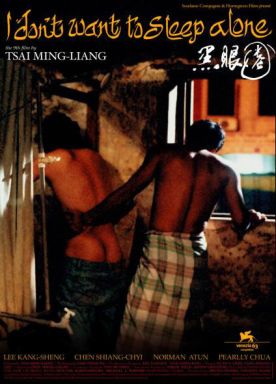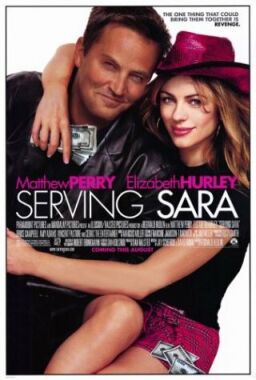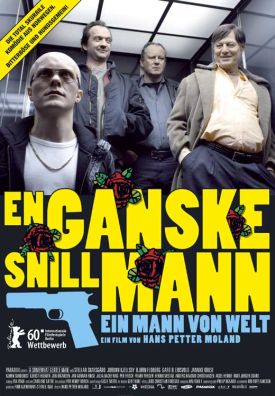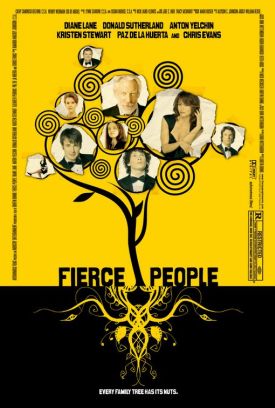Cruel World
Say this for Cruel World, it certainly doesn’t try to ingratiate itself with its audience. I think that’s supposed to be a good thing. It is a dreadful mess of a movie, but that’s at least as much because its makers set out to make it a mess as it is because they didn’t know any better. In its ambition it resembles Michael Haneke’s chilling Funny Games (1998), a movie about kidnapping and murder that is also about movies about kidnapping and murder — and the kinds of enjoyment we get from them. But Kelsey T. Howard and Paul T. Murray, director and writer of Cruel World fall woefully short of Haneke’s standard of movie-making.
Part of the problem is that they can’t make up their minds whether they’re making a satire or a horror flick. The satire dulls the edge of the horror and the horror kills the satire stone dead. Wes Craven’s Scream films got around this problem by satirizing the conventions of cinematic horror itself, but the horror in Cruel World is incidental to the satire and so seems merely gratuitous. Another part of the problem is that what the movie satirizes is reality TV. That’s way too easy a target — or way too hard. Reality TV always stands at the verge of self-satire. The combination of exhibitionism and greed on the part of the performers and voyeurism and the creepiest kind of exploitation on the part of the producers means that the things deserving of satirical treatment are already built in. How can you tell the satire from the real thing?
Messrs Howard and Murray may think they’ve got an answer to that one in the fact that the losing contestants on their reality show are murdered. But as murder plays no part in real reality TV — that would be much too real for it — this just seems bizarre and unnecessary. Edward Furlong plays Philip Markham, a young man who has gone from reality contestant to reality producer. When he is rejected by the beautiful Catherine Anderson (Jaime Pressly) before ten million people on a Joe Millionaire-like reality series, he makes up his mind to take revenge not only on her and the man she chose instead but also on his own group of reality contestants. As one of them says in extremis, “What did I ever do to you?”
Hm, that is rather the problem, isn’t it? I surmise that the authors were trying, like Michael Haneke, to strip away all vestiges of art and artifice and so to make the thing that in the expression “reality TV” is an ironic joke into reality indeed, or rather into an image of it. But in order to do that they have had to create the biggest and most unreal cliché of all: a caricature villain out to get revenge on reality show contestants because he was rejected by a reality show. Talk about artifice! Mr Haneke’s villains are all the scarier for having no visible motivation for the things they do, and they themselves joke about this. Mr Furlong’s Philip, by being given a stock and frankly unbelievable motivation becomes a figure out of pantomime. Or soap opera.
Nor does the artificiality stop there. He is assisted in all his villainies by a younger and much larger brother named Claude (Daniel Franzese) who appears to be developmentally challenged, as they say. Like the Bond villain, Jaws, he has scary teeth, and he carries out all Philip’s gruesome instructions with a child-like loyalty. Or almost all. On two occasions he threatens revolt on the grounds of his sexual interest in one of the contestants, Jenny (Laura Ramsey).
“You said I could have Jenny!” says Claude, waving his gun around carelessly.
You may think you know what’s going to happen next, or at least eventually, but the movie plays with these expectations as a kind of compensation, I guess, for having a couple of main characters so caricatured that they call to mind Pinkie and the Brain. Mr Furlong hams it up even more by constantly drinking and smoking and smiling and joking about his own wickedness. The young contestants, all college students who have been attracted by the promise of a million-dollar prize for the winner, are also much too sketchily realized for us to care very much when they start to be killed off.
Again, this must be deliberate. The film glories in the kids’ lack of individuality by having them introduce themselves as types right at the start: the farm boy, the goofy guy, the shy girl, the Dixie darlin’ and so forth. The idea must be to mimic the conventions of reality TV, but even at this point these conventions serve no apparent purpose. We have already understood that the movie is going to be about Philip’s terrorizing and murdering people, and he might just as well be doing it on a sitcom — or in some Agatha Christie country house — as a reality show. Either of those scenarios might have made this a better picture, but then almost anything done differently might have made this a better picture, if not a good one. I found it ugly, repellant and pointless from beginning to end, but there will doubtless be some more adventurous cinéphiles than I who will see it as one of the landmarks of post-modern experimentation.
Discover more from James Bowman
Subscribe to get the latest posts to your email.






